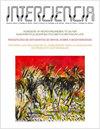持续舞蹈对情绪的影响及舞蹈自我效能感的影响因素
IF 0.4
4区 综合性期刊
Q4 ECOLOGY
引用次数: 0
摘要
2019年以来的新冠肺炎疫情严重影响了人们的身心健康,缓解长期负面情绪成为当务之急。虽然体育教学中的舞蹈行为可以缓解负面情绪,但很少有研究探讨其在COVID-19等突发危机后的效果以及持续舞蹈行为的前因,即在这种特定条件下影响舞蹈自我效能的因素。本研究通过对中韩两所大学的舞蹈学校学生发放307份问卷进行实证研究,旨在填补相关领域的空白,并为未来的研究者和从业者提供指导。方法:本研究采用问卷调查法进行结构方程建模。本文分别从中国和韩国的两所大学收集实证数据来检验构念之间的关系。理论框架构建运用刺激-机体-反应框架和社会认知理论,深入探讨影响舞蹈自我效能感的心理因素,以及持续的舞蹈行为是否能够缓解危机后的负面情绪。结果:研究结果表明,舞蹈自我效能感是维持个人持续舞蹈意愿的关键因素,舞蹈活动对情绪改善有积极影响。掌握体验和替代体验对舞蹈自我效能感均有显著影响,但影响程度不同。掌握体验正向提升舞蹈自我效能感,替代体验负向提升舞蹈自我效能感。增强反馈也会影响舞蹈自我效能感,尽管与前两个因素相比,影响程度要小一些。相比之下,生理和情感状态不同于其他学科,作为评估舞蹈自我效能的常见来源。此外,在危机或外部刺激后,环境因素会影响舞蹈自我效能。讨论:本研究将刺激-机体-反应框架和社会认知理论扩展到体育教学情境。本研究旨在揭示体育活动中舞蹈自我效能感行为的前因,探讨突发危机后持续舞蹈活动是否对情绪有舒缓作用。研究成果丰富了舞蹈教育的相关文献,为从事体育教育活动的人员提供理论支持和管理启示。本文章由计算机程序翻译,如有差异,请以英文原文为准。
Examining the Impact of Continuous Dance on Emotions and Factors Influencing Dance Self-Efficacy
Introduction: The COVID-19 outbreak since 2019 seriously affected both physical and mental health, making relief for long-term negative emotions a top priority. While dance behavior in physical education is known to alleviate negative emotions, few researchers explored its effect after sudden crises like COVID-19 and antecedents of sustained dance behavior, i.e., factors influencing dance self-efficacy under such specific conditions. This study conducts empirical research by distributing 307 questionnaires to dance school students from two universities in China and South Korea, aiming to address gaps in related fields and offer guidance to future researchers and practitioners.\n\nMethods: In this study, structural equation modeling was carried out using a questionnaire. Empirical data were collected separately from two universities in China and Korea to examine the relationship between the constructs. Theoretical framework construction utilized the stimulus-organism-response framework and social cognitive theory for an in-depth exploration of the psychological factors affecting dance self-efficacy and whether continuous dance behavior can alleviate negative emotions after a crisis.\n\nResults: The findings reveal that dance self-efficacy emerges as a crucial factor in sustaining individuals\' ongoing dance intentions, with dance activities positively impacting mood improvement. Both mastery experience and vicarious experience significantly influence dance self-efficacy, albeit with differing effects. Mastery experience positively enhances dance self-efficacy, while vicarious experience has a negative impact. Augmented feedback also affects dance self-efficacy, though to a lesser extent compared to the former two factors. In contrast, physiological and affective states differ from those in other disciplines as common sources for evaluating dance self-efficacy. Moreover, environmental factors influence dance self-efficacy in the aftermath of a crisis or external stimulus. \n\nDiscussion: This study extends the stimulus-organism-response framework and social cognitive theory to the context of physical education. It aims to reveal the antecedents of dance self-efficacy behavior in physical education activities and explore whether persistent dance activities after a sudden crisis have a soothing effect on emotions. The research results enrich the relevant literature on dance education and provide theoretical support and management inspiration for those engaged in physical education activities.
求助全文
通过发布文献求助,成功后即可免费获取论文全文。
去求助
来源期刊

Interciencia
综合性期刊-生态学
CiteScore
0.80
自引率
25.00%
发文量
1
审稿时长
4-8 weeks
期刊介绍:
Interciencia is the monthly multidisciplinary publication of the INTERCIENCIA Association. It is dedicated to stimulate scientific research, its humanitarian use and the study of its social context, specially in Latin America and the Caribbean and to promote communication between the scientific and technological communities of the Americas.
Interciencia has been published uninterruptedly since 1976. Its Founding Director, Marcel Roche (endocrinologist and sociologist of science) was editor until 2008, and thereafter Miguel Laufer (neurobiologist) has been in charge. It has been included since 1978 in the Science Citation Index and other international indexes, and since 2008 it maintains an open access electronic version with material from 2005 onwards.
The priority areas of the journal, without exclusion of other areas, are Agronomy, Arid Lands, Food and Nutrition, Biotechnology, Ecology and Environment, Energy, Innovation and Technology Transfer, Marine Resources, Non-renewable Resources, Science Education, Science Policy, Study and Sociology of Science, and Tropical Forests.
Interciencia publishes in Spanish, Portuguese and English research and review articles, communications and essays, all of which are subjected to peer review. Additionally, it includes non-refereed sections such as Editorial, Letters to the Editor, Open Town Hall, Book Reviews and Upcoming Events.
All the material submitted to the journal for publication and accepted by the Editorial Committee in view of its quality and pertinence is subjected to review by peer specialists in the corresponding fields of knowledge. Neither the INTERCIENCIA Association, nor the journal or the institutions to which the authors belong carry responsibility for the contents. Signing authors are responsible for the material published under their names.
 求助内容:
求助内容: 应助结果提醒方式:
应助结果提醒方式:


